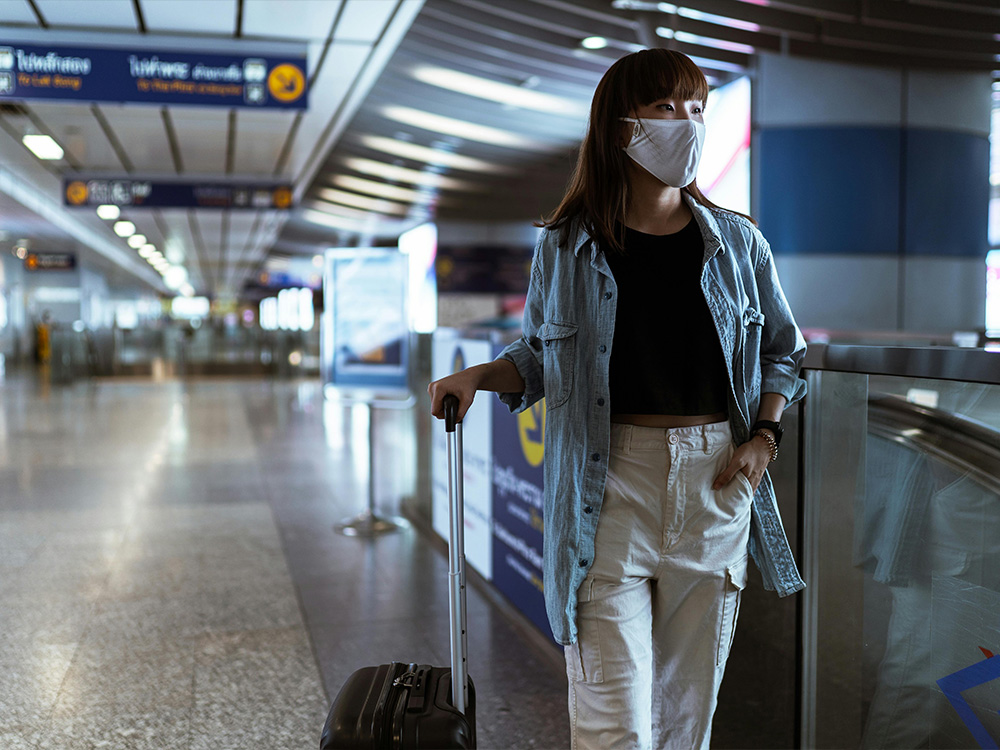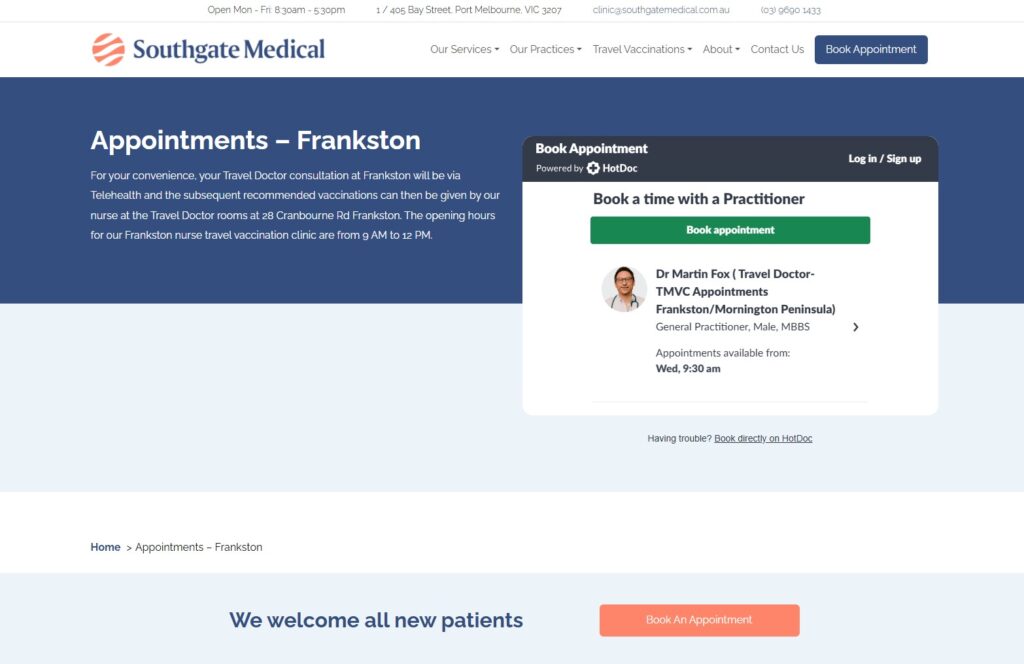Going to Thailand is an exciting experience, but it’s important to take care of your health. Before you travel, it’s a good idea to talk to a doctor or travel health clinic about the vaccinations you need. Getting the right vaccines can help keep you from getting sick and allow you to fully enjoy your time in Thailand.
Why vaccinations are important for travel to Thailand?
Thailand has different parts with cities, rural areas, and different environments. This means there are some diseases that are more common there that travellers should be aware of. Diseases like hepatitis A, typhoid, and flu are found in Thailand, and getting vaccinated can greatly lower your chances of catching these illnesses. Some areas of Thailand also have a risk of mosquito-borne diseases like malaria, dengue fever, and Japanese encephalitis, so vaccines and taking steps to prevent mosquito bites are very important.
Recommended vaccinations for all travellers to Thailand
To ensure a safe and healthy trip to Thailand, it’s crucial to get the vaccines needed for Thailand travel. Several essential vaccinations are recommended for all travellers, regardless of their specific travel plans or destinations within the country.
Hepatitis A
Hepatitis A is a viral liver disease that can be contracted through contaminated food or water, which is a risk in many parts of Thailand. The hepatitis A vaccine is highly effective in preventing this illness and is generally administered in two doses, with the second dose given six to twelve months after the first. Vaccination against hepatitis A is crucial for travellers to Thailand, as it can help prevent a potentially severe illness and disruption to your travel plans.
Typhoid
Typhoid fever is a bacterial infection that can be contracted through contaminated food or water, posing a risk in areas with poor sanitation. Thailand has regions where typhoid is prevalent, making vaccination an important consideration for travellers. The typhoid vaccine is available in two forms: an injectable vaccine and an oral vaccine. Your healthcare provider will recommend the most suitable option based on your specific circumstances.
Tetanus, Diphtheria, and Pertussis (Tdap): Importance of Boosters
The Tdap vaccine is an essential injection for Thailand travel, protecting against tetanus, diphtheria, and pertussis. Ensure your Tdap vaccination is up-to-date before your trip. Tetanus is contracted through cuts; diphtheria and pertussis are respiratory illnesses. Discuss this vital injection with your travel health professional when preparing for Thailand.
Vaccinations recommended for some travellers to Thailand

Hepatitis B
The hepatitis B vaccine is recommended for travellers who might be exposed to blood or body fluids, have direct contact with residents, or engage in activities that increase the risk of infection, such as getting tattoos or piercings.
Japanese Encephalitis
Japanese encephalitis is a mosquito-borne viral disease that can cause severe brain inflammation. Vaccination is advisable for travellers spending extended periods in rural areas or involved in outdoor activities.
Rabies
Rabies is a fatal viral disease transmitted through the bites or scratches of infected animals. The rabies vaccine is recommended for travellers who may have direct contact with animals, especially dogs, bats, or other mammals.
Cholera
Cholera is a bacterial disease that can cause severe diarrhoea and dehydration. The cholera vaccine may be considered for travellers visiting areas with active outbreaks or those with specific risk factors.
Yellow Fever
Yellow fever is a viral disease transmitted by infected mosquitoes. Some countries require proof of yellow fever vaccination for travellers arriving from countries with a risk of yellow fever transmission.
Measles, Mumps, and Rubella (MMR)
The MMR vaccine protects against measles, mumps, and rubella. Ensuring immunity through vaccination is crucial, especially for those born after 1966 or with an unknown vaccination history.
Other health considerations for travellers to Thailand

Malaria prevention: risks and prophylaxis
Malaria is a serious mosquito-borne disease prevalent in some areas of Thailand. Discuss antimalarial medications with your doctor if visiting high-risk regions. Use insect repellent, cover up, and sleep in screened or air-conditioned rooms.
Dengue fever: avoiding mosquito bites
Dengue fever, another mosquito-borne viral illness, is common in Thailand. There is no vaccine, so avoiding mosquito bites is crucial. Use repellent, wear long sleeves/pants, and stay in screened/air-conditioned accommodations.
Zika virus: precautions for pregnant women
Zika virus can cause birth defects. Pregnant women or those planning pregnancy should consult their doctor about the risks and consider postponing nonessential travel to Zika-affected areas in Thailand.
Staying healthy in Thailand
- Food and Water Safety – To avoid foodborne illnesses, exercise caution when consuming food and beverages in Thailand. Stick to hot, well-cooked meals, and avoid raw or undercooked meat, seafood, and unpasteurized dairy products. Drink only bottled or purified water, and avoid ice cubes made from tap water.
- Insect Bite Prevention – Mosquitoes and other insects can transmit diseases like malaria, dengue fever, and Zika virus. Use insect repellent containing DEET or picaridin, wear long-sleeved shirts and pants, and stay in accommodations with air conditioning or screened windows, especially during peak mosquito hours around dawn and dusk.
- General Hygiene Practices – Maintain good hygiene practices to reduce the risk of illness. Wash your hands frequently with soap and water, especially before eating or preparing food. Carry hand sanitiser for times when soap and water are unavailable. Avoid touching your face, nose, and mouth with unwashed hands.
Planning your vaccinations
When to see a travel health professional
It’s recommended to visit a travel health professional or clinic at least 4-6 weeks before your planned departure to Thailand. This allows enough time to receive the necessary vaccinations and for them to take full effect.
Creating a vaccination schedule
Your travel health provider will work with you to create a personalised vaccination schedule based on your travel plans, medical history, and any specific risk factors. Some vaccines may require multiple doses spaced out over several weeks or months.
What to discuss during your travel health consultation
During your consultation, be prepared to share details about your itinerary, including the regions you plan to visit, the duration of your stay, and any planned activities that may increase your risk of exposure to certain illnesses. Additionally, inform your provider about any underlying medical conditions or medications you’re taking.
Finding travel vaccination services in Australia

Travel vaccination clinics
Many cities and towns in Australia have specialised travel vaccination clinics that offer a comprehensive range of travel-related health services, including vaccinations and personalised advice from experienced healthcare professionals.
General practitioners
Your local GP or family doctor can also provide travel vaccinations and guidance. However, it’s advisable to book an appointment well in advance, as they may have limited availability or need to order specific vaccines.
If you’re looking for travel vaccinations in Melbourne, you can book an appointment with Dr. Martin Fox at Southgate Medical Centre.
Online resources and information
The Australian Government’s Department of Health website (health.gov.au) and the Centers for Disease Control and Prevention (CDC) website (cdc.gov) are reliable sources for up-to-date information on travel health recommendations, vaccination requirements, and other travel-related health concerns.
